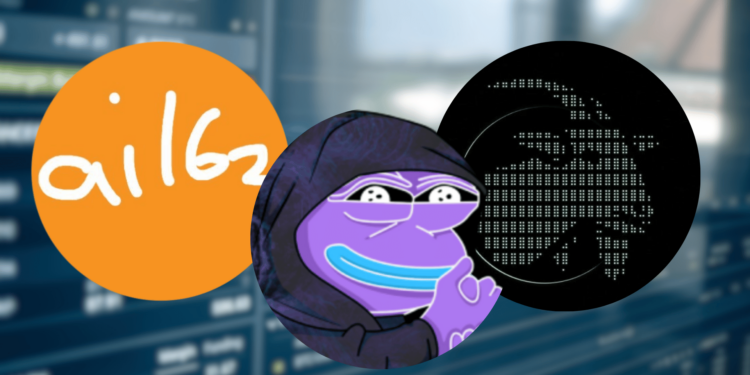- AI agents are making blockchain more accessible, automating complex tasks and streamlining DeFi interactions.
- These agents are also boosting security, detecting fraud and monitoring transactions in real-time.
- The challenge is balancing autonomy with accountability, ensuring AI remains ethical and transparent in decentralized systems.
The Web3 space is evolving fast, and AI agents are at the forefront—automating complex tasks, crunching massive data sets in milliseconds, and fundamentally changing how users interact with blockchain.
For years, blockchain felt like a tech playground for the few, an ecosystem riddled with complexity. But AI? It’s turning that exclusivity on its head. By simplifying interactions and boosting efficiency, AI agents are making decentralized systems not just smarter, but actually usable for the average person.
Blockchain + AI: The $15.7 Trillion Revolution
With AI expected to inject $15.7 trillion into the global economy by 2030, its impact on decentralized finance (DeFi) can’t be ignored. But with all this potential comes some huge questions:
- Can AI agents operate truly independently?
- How do we hold them accountable?
- Do they make blockchain safer, or just introduce new risks?
The answer? It depends on how we build them.
Simplifying Blockchain: AI as the “Intuitive Guide”
Right now, AI agents are already reshaping DeFi—handling liquidity management, automating yield strategies, and streamlining blockchain interactions.
Platforms like Fetch.ai are going a step further, using AI to simplify logistics and remove blockchain’s steep learning curve. These agents aren’t just optimizing systems—they’re acting as guides, helping users navigate crypto without needing a PhD in cryptography.
And that’s the game-changer. Blockchain is no longer just for the hardcore enthusiasts—it’s becoming a tool for the masses.
AI: The Watchdog of Blockchain Security?
Beyond efficiency, AI agents are becoming blockchain’s security force. With the crypto AI market already valued at $10 billion, these agents are stepping up as real-time fraud detectors.
- 24/7 transaction monitoring—no human fatigue.
- Instant anomaly detection—spotting threats before they spread.
- Sentiment & trading pattern analysis—keeping markets stable.
But here’s the problem—AI is only as good as the data it’s trained on. And if that data is flawed? The risks are massive.
Malicious actors can corrupt AI agents, turning them into tools for exploitation. That’s why the industry must enforce rigorous safeguards, continuous monitoring, and human oversight to make sure AI protects blockchain, rather than weakens it.
Autonomy vs. Accountability: The Balancing Act
AI agents must walk a fine line—too much autonomy, and they become unpredictable; too much control, and they lose the efficiency that makes them so valuable.
85% of AI systems fail due to bad data.
That’s a huge problem in blockchain, where trust and transparency are non-negotiable. AI can’t be left unchecked—it needs constant audits, transparent algorithms, and ethical safeguards to make sure it doesn’t compromise decentralized principles.
The Road Ahead: AI Agents Are Here to Stay
AI isn’t just integrating into blockchain—it’s reshaping its very foundation. From efficiency and security to accessibility, the fusion of these two technologies is unlocking a new era in decentralized systems.
But the real question is—will AI agents be the key to blockchain’s mass adoption or just another layer of complexity?
That all depends on how we build, regulate, and refine them.














